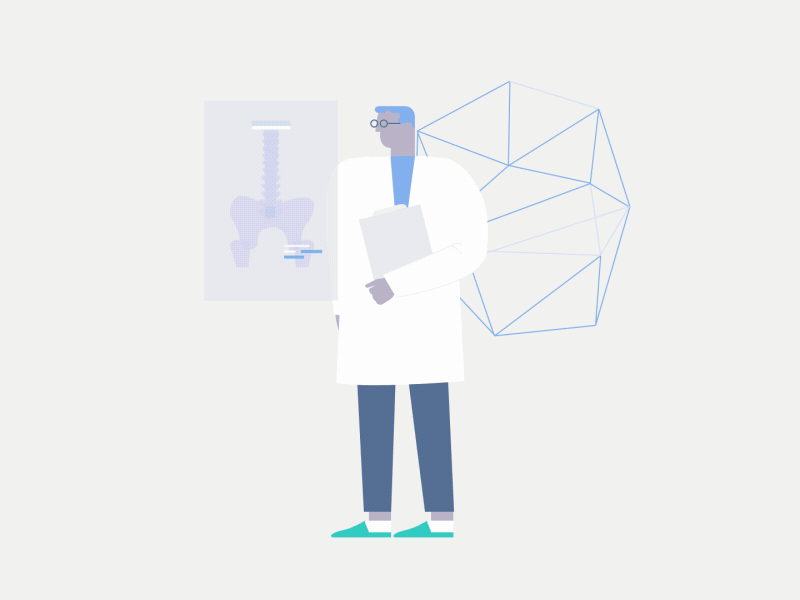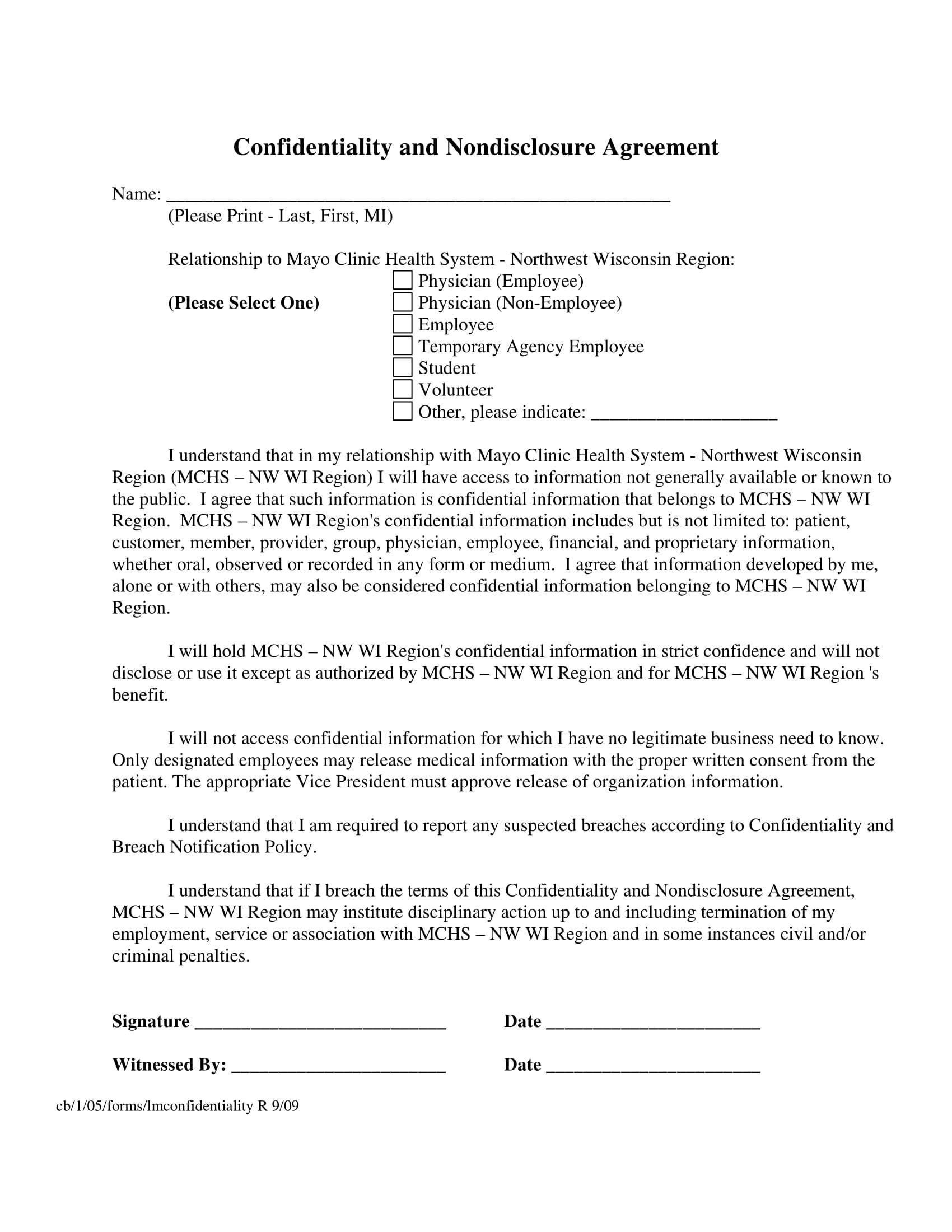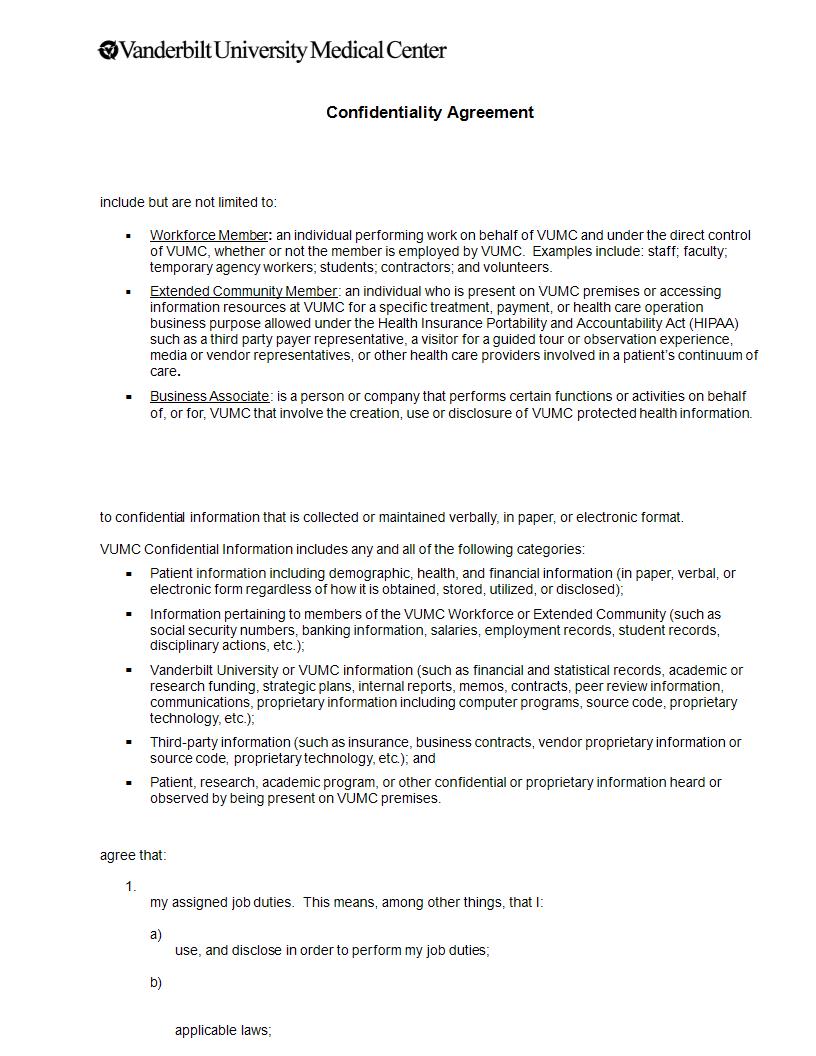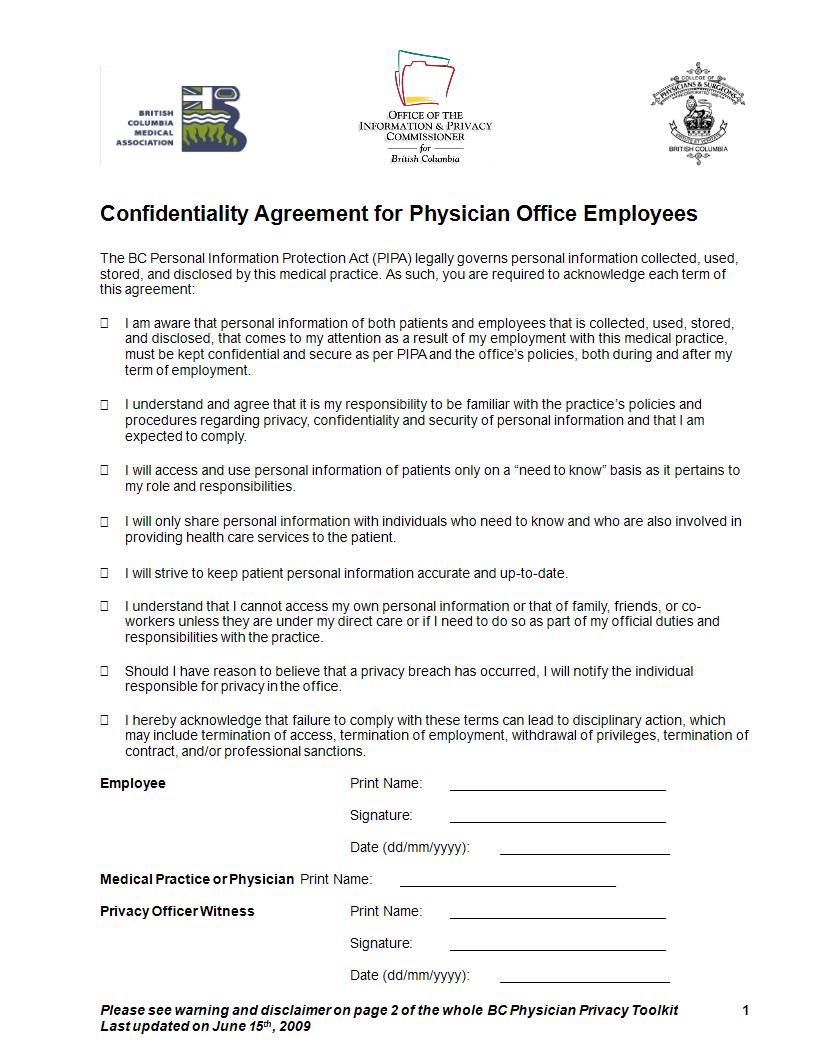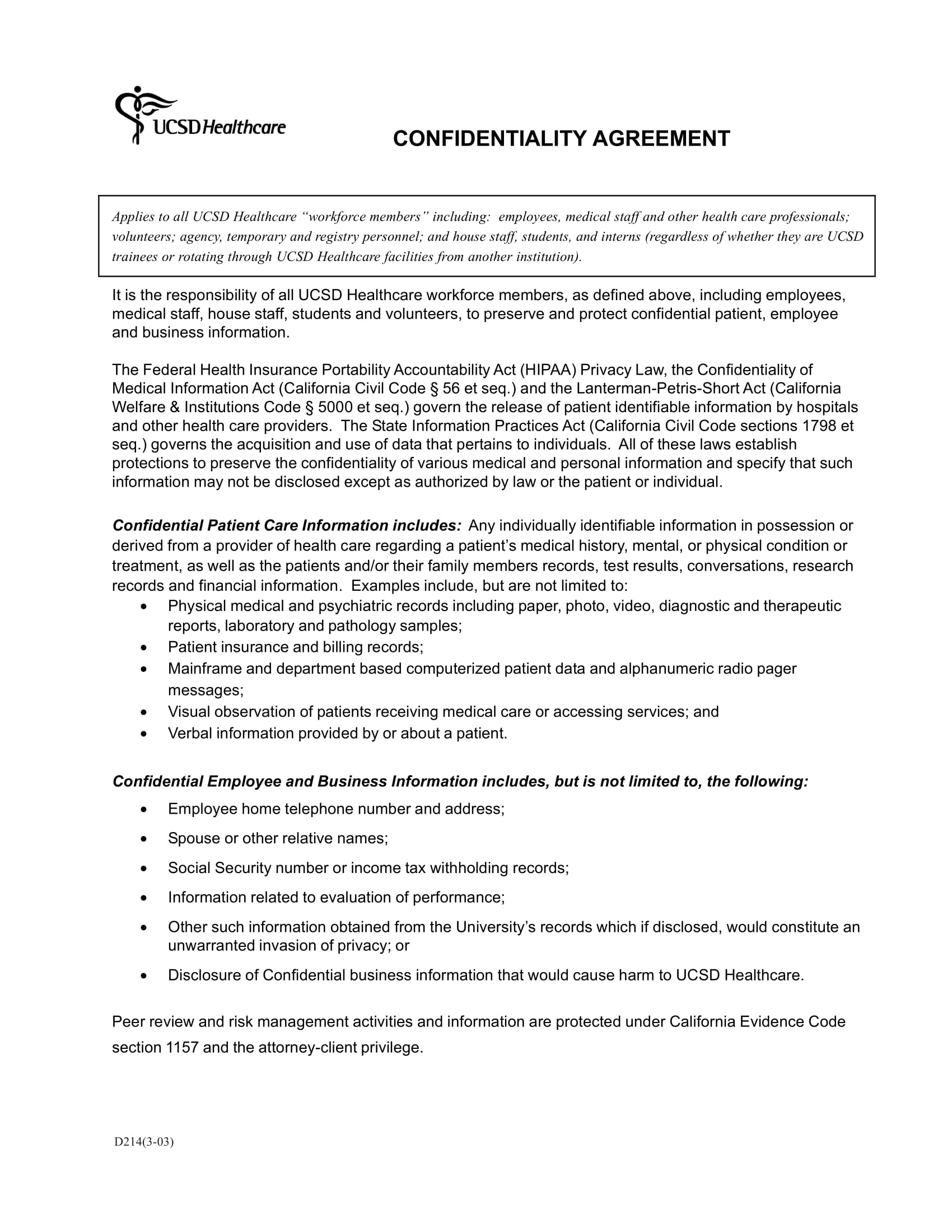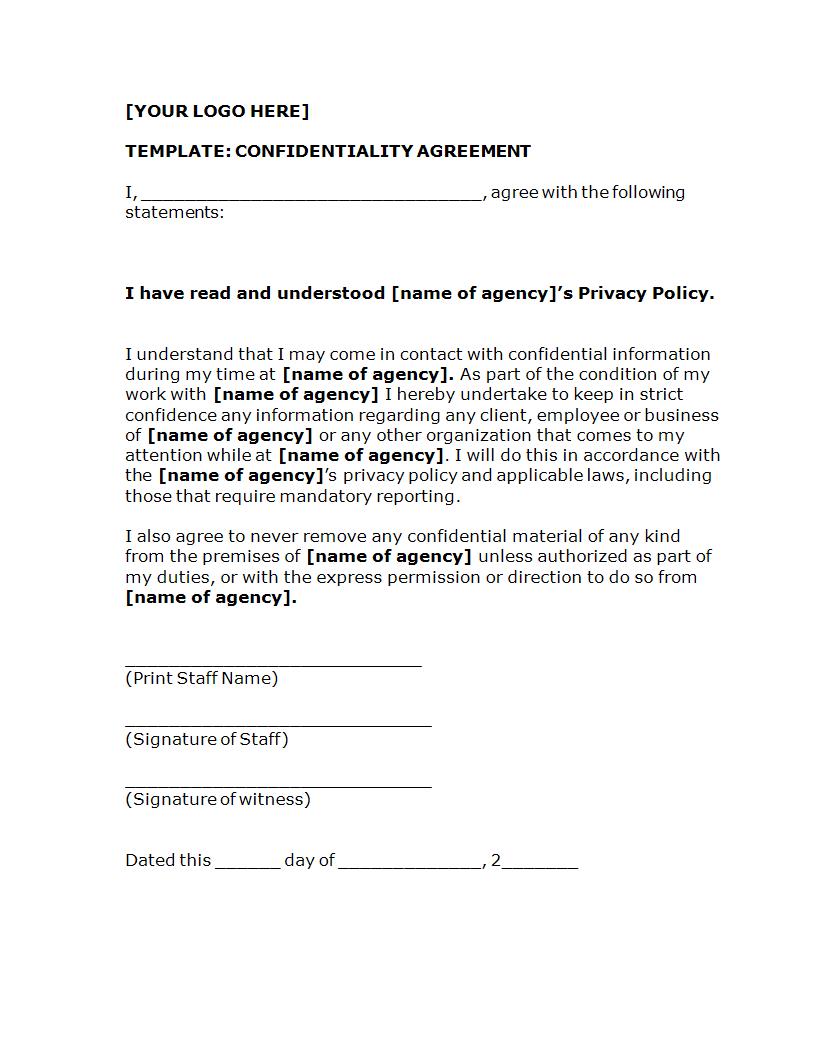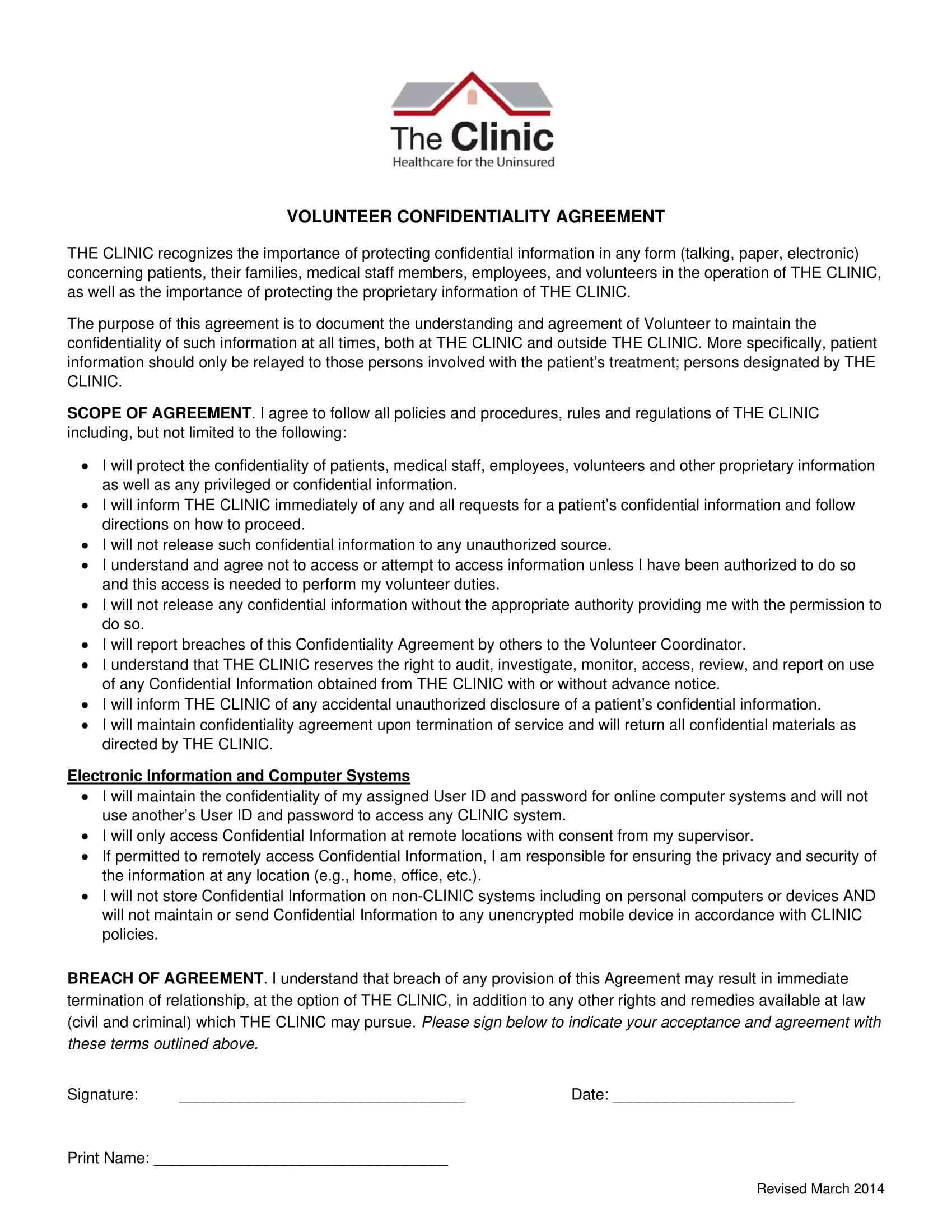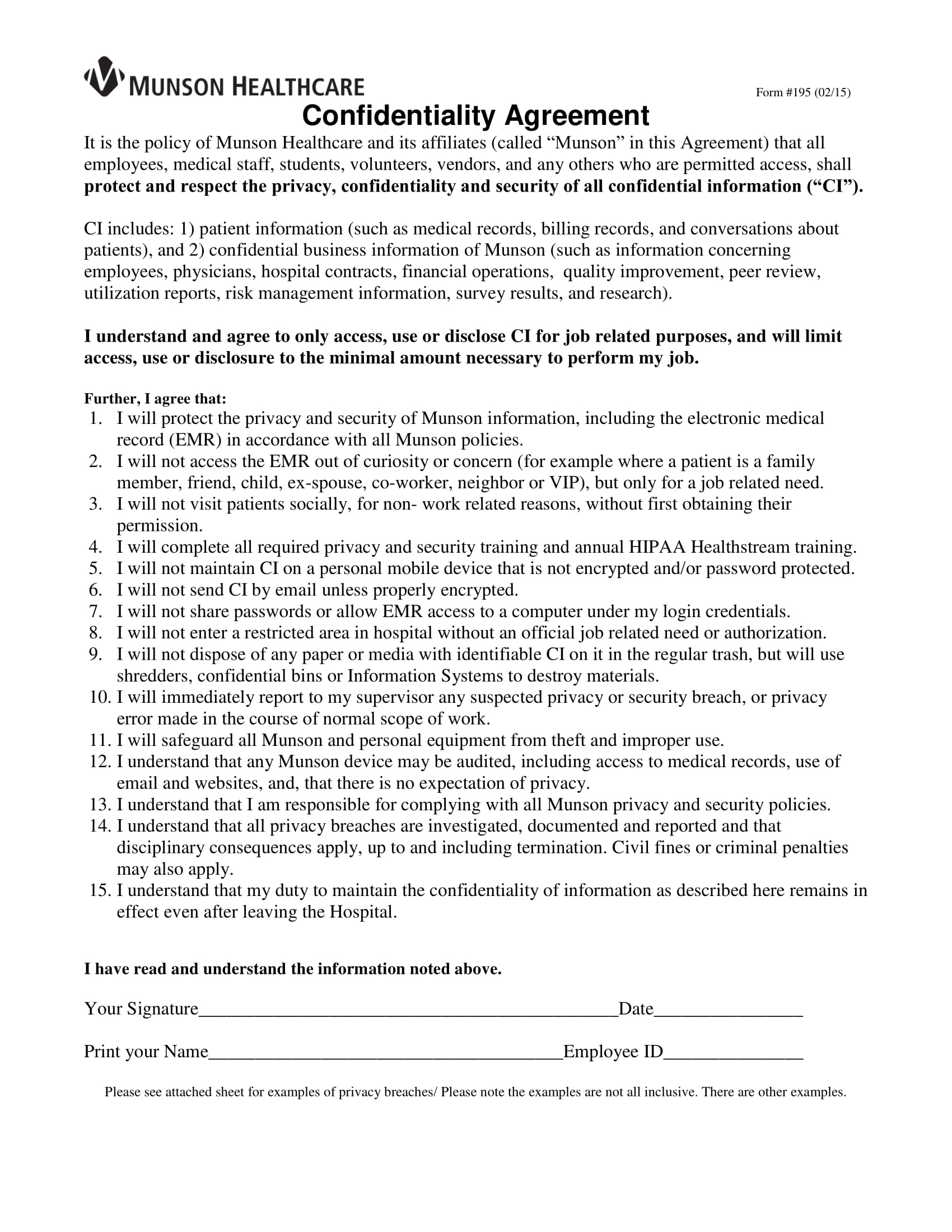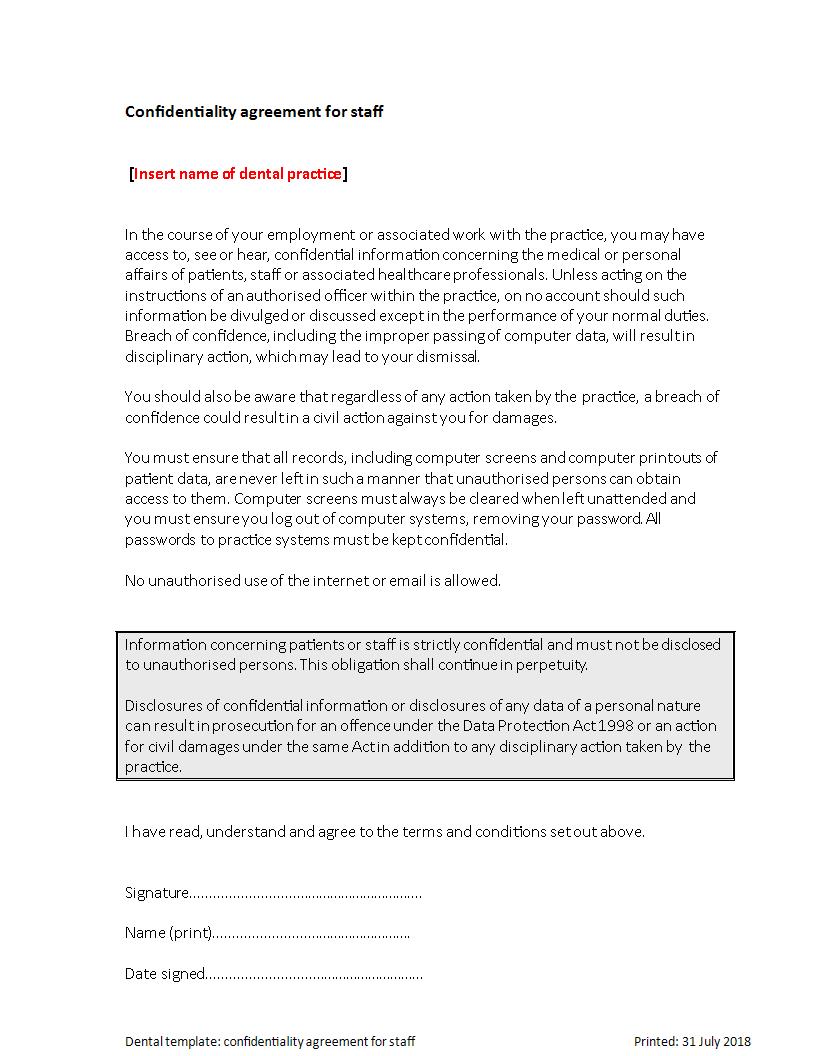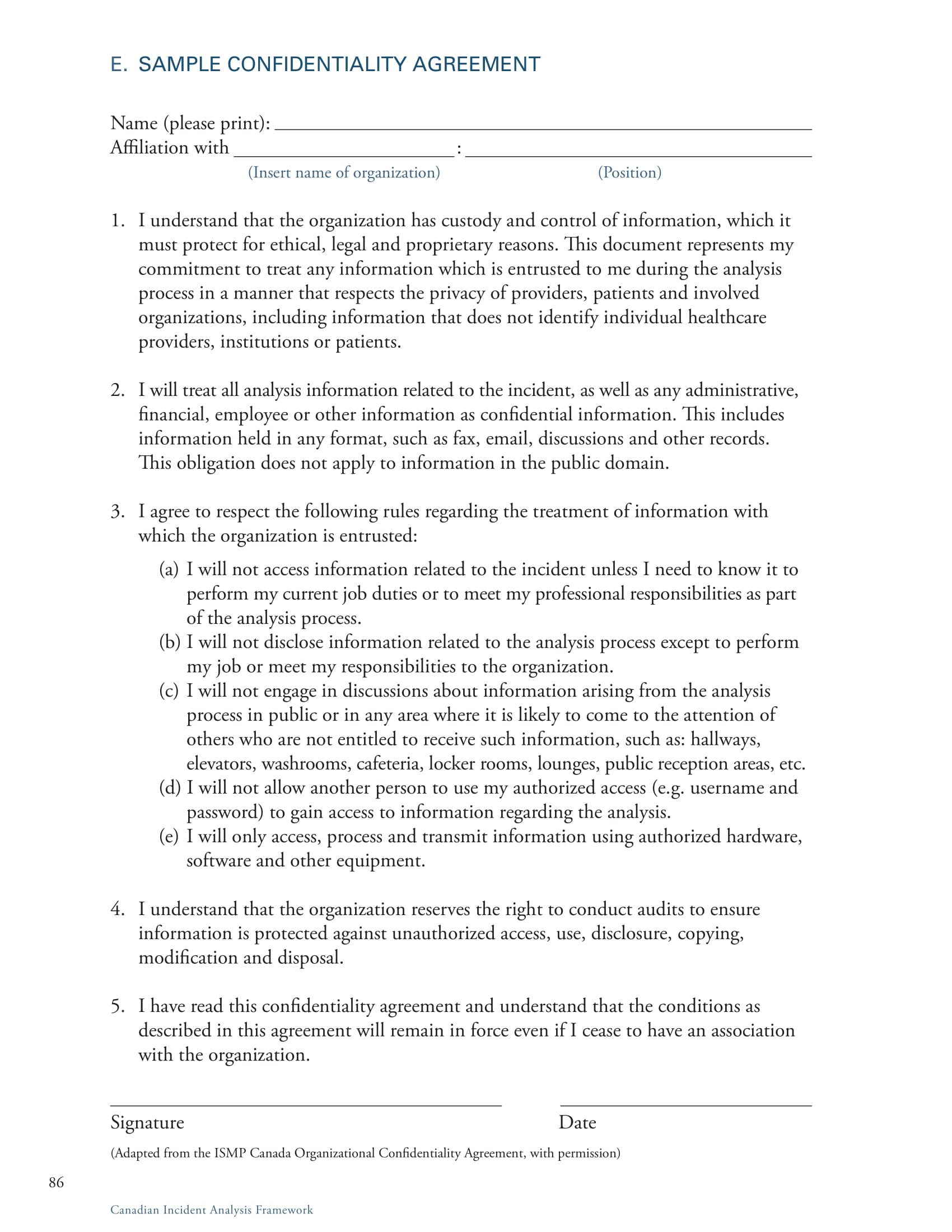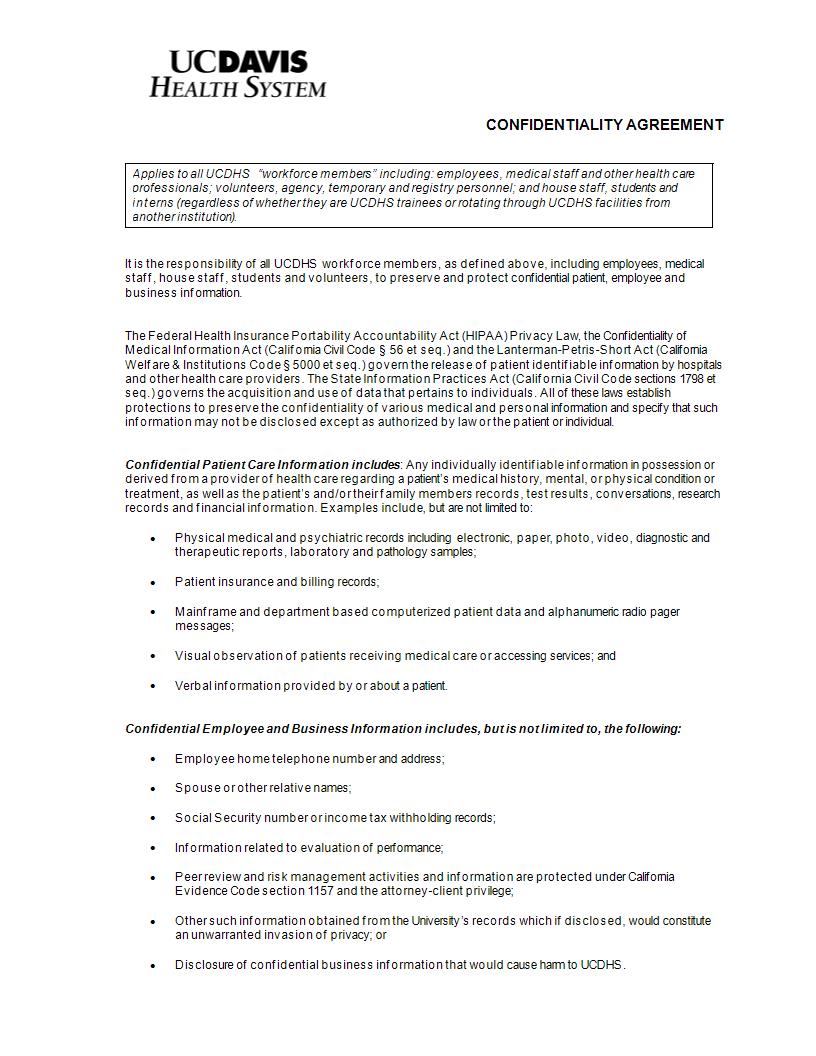11+ Medical Confidentiality Agreement Examples to Download
When patients see a doctor to discuss certain conditions or illnesses they might be going through, they expect that doctors and health professionals alike maintain professionalism.
Patients expect that their doctors, nurses, lab technicians, etc., will keep whatever information they have access to just between them. Whatever the case may be, be it a sensitive condition or not, it is expected that the information about such condition remain confidential. You may also see employee confidentiality agreement examples.

Besides, medical professionals are bound to their governing law, the HIPAA (Health Insurance Portability and Accountability Act), wherein it is emphasized that protecting the privacy and security of certain health information is a priority. You may also like confidentiality agreement examples.
Medical Confidentiality Agreement
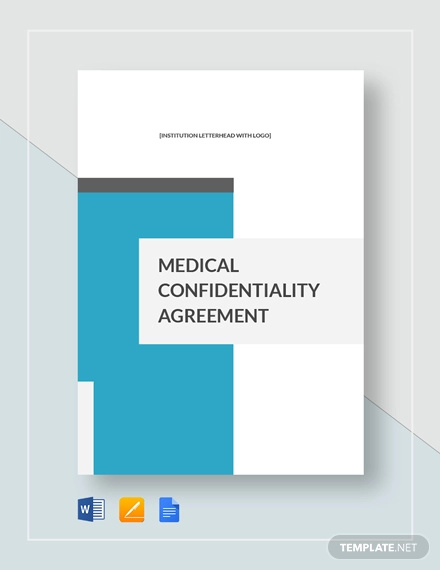
Patient Confidentiality Agreement Example
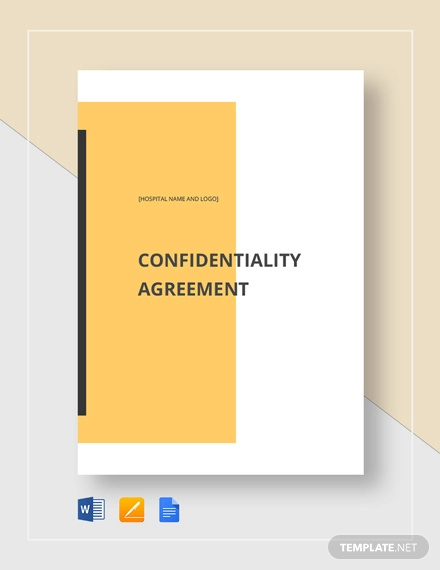
Medical Confidentiality and Non-Disclosure Agreement Example
Especially in this day and age where everything is highly dependent on technology, such information can be easily accessed by anyone and might be used for the wrong things. The HIPAA regulates and sets a standard to the transfer of sensitive, confidential, and personal health information. You may also check out non-disclosure agreement examples.
University Hospital Confidentiality Agreement Example
Physician’s Office Confidentiality Agreement Example
With this in mind, people who work in the healthcare industry are expected to the their best to uphold their governing law. Medical professionals who fail to follow their set of rules and standards are liable to the law. Therefore, they do their best to maintain secrecy and confidentiality of the information they have efficient access to. You might be interested in non-disclosure confidentiality agreement examples.
Healthcare Confidentiality Agreement Example
Editable Confidentiality Agreement Template Example
Importance of Privacy/Confidentiality in the Healthcare Industry
When going to your doctor to have a thorough checkup on what you are feeling, you have to be completely honest. Honesty when describing and giving out symptoms, health, illnesses, or personal habits is significant to effective treatment. And since you know that your doctor is not going to divulge such personal information about you, you are going to be as open as you can be. You may also see license agreement examples.
The more details you provide to your doctor, the more they’ll be able to figure out your illness and the more they can provide you with accurate treatment.
However, if you don’t feel comfortable stating your truth to your doctor, there is no point in even seeing one. As you may know, there are illnesses with stigmas attached on to them, being a patient with such illnesses means you want to keep everything about it private. You may also like roommate agreement examples.
Patient privacy or confidentiality ensures that the ignorance that comes with such stigmas do not harm you. As the patient, you should be the one to decide who gets to know of your medical history.
With this in mind, it is very important that there is privacy and confidentiality with regards to medical records and other medical information. Because aside from the personal benefits of keeping what has been discussed between the patient and the doctor, when taken as a whole, a large portion of the population will feel confident in the professionalism medical professionals exhibit. You may also check out basic non-disclosure agreement examples.
And in return, a lot of people will more likely be willing to participate in studies and healthcare initiatives that will help in fighting diseases and lessening the spread of epidemics.
In conclusion, doctor-patient confidentiality helps people trust healthcare professionals more. It makes confiding and sharing sensitive information regarding an illness a patient is going through so much easier.
It does not only help patients ensure that medical professionals share their private medical information to the world, it also helps medical professionals actually do their jobs more accurately and efficiently. This helps eliminate the fear of being ridiculed for certain diseases and illnesses. Lastly, this helps build trust and confidence between the doctor-patient relationship. You might be interested in staff confidentiality agreement examples.
Clinic Volunteer Confidentiality Agreement Example
Benefits of Medical Confidentiality Agreement
Although you have confidence and trust that your doctor or other medical professionals will keep your medical information private, it is still very much acceptable to make sure it is kept that way. Some doctors may provide a medical confidentiality agreement and some may not. If you want to take matters up to your own hands, here are some of the benefits of using a medical confidentiality agreement:
1. It formalizes the requirement to keep your medical information confidential unless with your permission.
2. You can draft the agreement keeping in mind your needs and preferences.
3. The simple agreement gives the signatory a clear idea as to what information are considered confidential by the patient or facility.
4. It clearly states the consequence and liabilities should the signatory breach what has been discussed in the agreement.
5. The general agreement is considered as a valid proof in the court of law.
6. It prioritizes the privacy of the patients.
7. It ensures that everything that has been discussed by the patient and doctor/s remains private and confidential.
Medical Confidentiality Agreement Example
Dental Clinic Staff Confidentiality Agreement Template Example
Questions about Healthcare Privacy Law
In order to understand the how privacy in the healthcare industry works, here are some questions as well as answers you may have about privacy laws concerning your medical information:
1. Who can get access to my medical information?
Doctors, nurses, and hospitals will need to share your medical information in order to ensure that you get the right treat that does not come in conflict with other treatments or medications that you are currently on.
Therefore, whoever is providing your care (e.g., doctors, nurses, and other medical professionals), the organizations or insurance company that is funding that care can also have access to your medical information. The government can sometimes ask for such information is needed. You may also see mutual confidentiality agreement examples.
2. Does my employer have access to my medical records or insurance claims?
Your employer does not have access to your medical records or insurance claims. The HIPAA explicitly prohibits employers to have access to your medical records in order to avoid discrimination.
A written permission will have to be ranted to an employer should they want access to your medical records and other medical information. Also under the HIPAA, your employer or HR manager can ask for a doctor’s note or any information about your health only to grant you sick leave, workers’ compensation, wellness programs, or health insurance. You may also like teacher confidentiality agreement examples.
3. What rights do I have to access and control my health information?
Health insurers and providers should make your medical records available upon your request. This should also allow you to copy the records and make corrections. They also have the obligation to explain to you how you may use or share your medical information. You may also check out audit confidentiality agreement examples.
You have the autonomy to decide when to access your personal medical records; however, your health insurers and providers still has to make sure you understand how to effective use and share it.
4. Can family members see my medical records?
There are no prohibitions in the federal law to ordinary health care practices such as hospital staff discussing your condition and your treatment options with family members, or picking up a prescription for a relative.
However, you still have to give written permission so that they may see your original medical records. By giving the designation to your family member/s as your “personal representative” on a signed letter or form, your healthcare providers are given the requirement so they can avoid HIPAA violations. Therefore, it is better to designate who your representative will be in case certain circumstances arise. You might be interested in examples of user agreements.
5. Is my health information vulnerable because of widespread use of electronic medical records?
The widespread use of electronic medical records (EMRs) provide healthcare providers quick access to your information and a real-time tool that can help improve the quality of health care.
However, these EMRs can be prone to security breaches since information is communicated electronically. But you still have to remember that providers of EMRs are laser-focused when it comes to these threats. This makes EMRs more reliable and less vulnerable than an open chart left on a hospital counter. You may also see non-compete agreement examples.
6. If I lose my insurance and apply on the open market, can my new insurance company contact my old insurance company to review my claims history to determine my coverage or rates?
There is no possibility of this circumstance form ever happening. One insurance company cannot and simply will not share your claims history to another insurance company because it is considered as unauthorized disclosure to a third party, which is a HIPAA violation. Only once you disclose your doctor’s name will the insurance company have the access individual doctors’ files for underwriting purposes. You may also like loan agreement examples.
7. Can my health information be used for marketing purposes?
Unless you give your permission or take part in free health screenings, then no.
Unless there is permission from the patient, individual and group health plans, health care clearinghouses, and healthcare providers can not reveal health information or provide data to a third party for marketing in exchange for direct or indirect payment. However, if you participate in free or low-cost health screenings, your information can be given out to marketers. You may also check out what is a business agreement?
8. Can my health information be used for research?
Your health information can be used for research, but your name must remain confidential.
Although there are conditions for confidentiality that are strictly implemented and followed, private researchers and government agencies compiling health data outcomes commonly have access to patient medical records. However, although your name is indicated on those documents, the researchers cannot publicize your name. You might be interested in service level agreement examples.
9. Is my prescription drug information protected?
Anonymous prescription data from pharmacies can be forwarded to companies that collect and sell this information to pharmaceutical companies. It will then be used by pharmaceutical company representatives to contact your doctor to suggest other alternative medicine they can prescribe to you. However, your name should and would still be anonymous to them. You may also see regional agreement examples.
10. Can debt collection agencies access information about unpaid medical bills?
Debt collection agencies can access information about unpaid medical bills; however, they are not provided of the full details about specific treatments.
Bills for doctors and hospitals that are overdue can be reported to collection agencies. In addition, it may also show up in your credit report. The information that will be given out are as follows: name and address, your date of birth, Social Security number, your payment history, and the name of the health provider owed money. You may also like sales agency agreement examples.
Incident Analysis Confidentiality Agreement Example
Hospital Staff Confidentiality Agreement Example
Tips in Maintaining Confidentiality in Healthcare
Here are some useful tips you can use as guide or inspiration in order to maintain and uphold the healthcare confidentiality law:
- Practice the constant usage of simple confidentiality agreements.
- Discourage employees from posting patient information or even pictures online.
- Be diligent in checking online content of your healthcare employees.
- Do not allow cellphones on the floor or stations.
- Regularly provide training.
- Discuss the repercussions of violating the HIPAA.
We hope that you have learned some significant information in this guide. The examples given above may be used for your own purpose.


